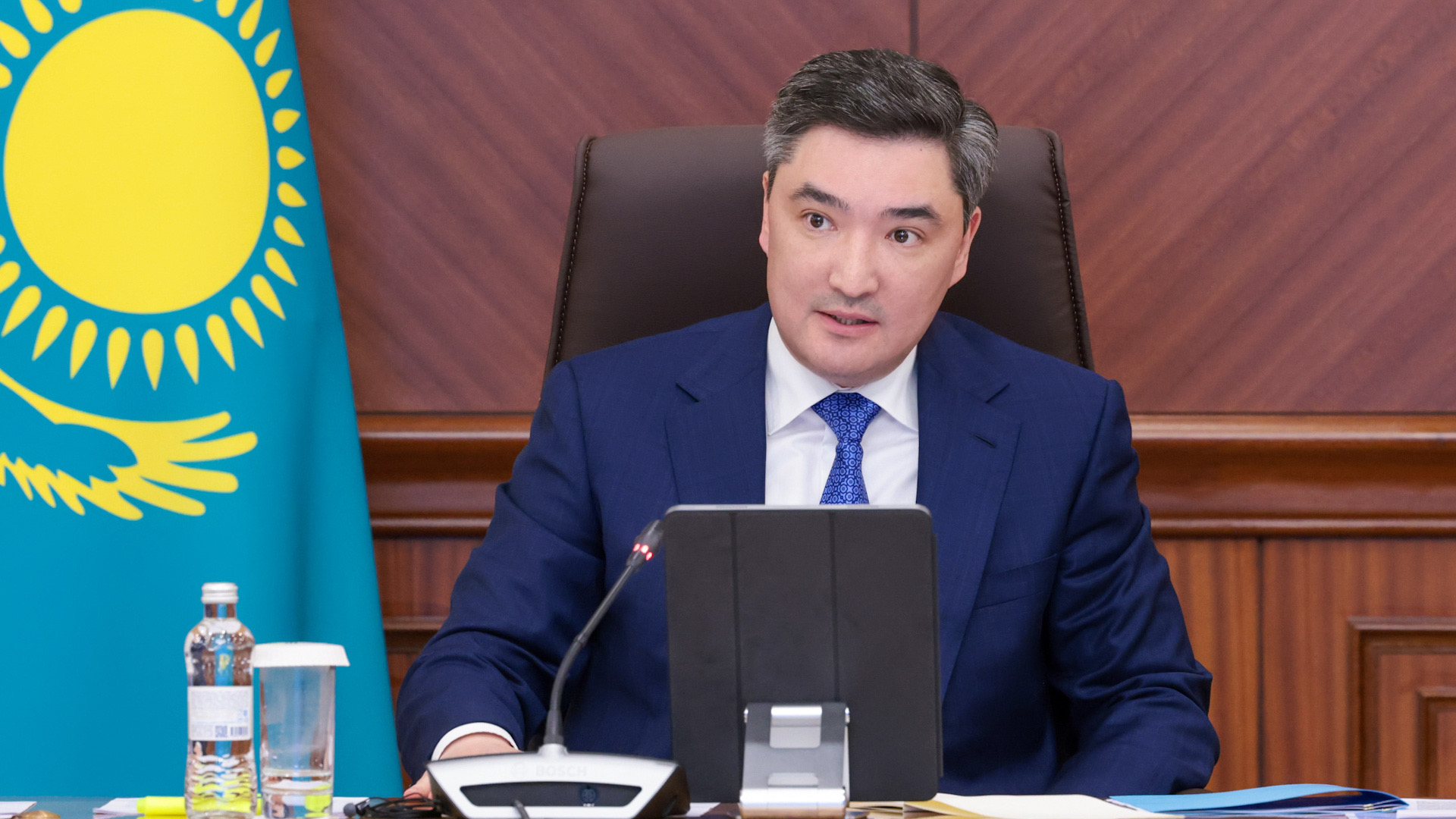ASTANA – Kazakh Prime Minister Olzhas Bektenov emphasized the need for expanding partnerships with European Union (EU) countries to develop sustainable water infrastructure amid the ongoing flood challenges in Kazakhstan at the 14th meeting of the Kazakhstan-EU dialogue platform on April 18, reported the Prime Minister’s press service.

Olzhas Bektenov. Photo credit: primeminister.kz
Bektenov noted the necessity of new approaches to proper resource management to prevent future disasters. He expressed the government’s interest in applying the EU’s best practices and developments, urging both sides to synchronize.
The Kazakh government has adopted the development concept of water resource management to reduce unproductive losses during transportation, improve irrigated land monitoring systems, and modernize hydraulic structures to reduce the threat of emergencies.
EU Ambassador to Kazakhstan Kęstutis Jankauskas prioritized cooperation in the water issue with Central Asia, adding that interaction in agriculture and water resources management will be key issues on the bilateral agenda this year.
He also confirmed the EU’s readiness to collaborate with Kazakhstan in this direction, including by transferring knowledge and technologies in sustainable management of water basins and rivers.
During the meeting, ambassadors from European countries and representatives of foreign companies shared their experience in water-saving technologies and agricultural development. Austrian Ambassador Willy Kempel presented innovative irrigation technology and solutions for unirrigated farming, which promise higher yields with reduced water consumption.
Calling water conservation a fundamental direction for the agricultural sectors of Germany and Kazakhstan, head of the German-Kazakh agrarian-political dialogue Olga Hunger emphasized the potential of introducing artificial intelligence (AI) into irrigation technology and new processing methods to preserve soil fertility and moisture.
The meeting also touched on Finland’s experience in monitoring surface and groundwater quality using solar-powered autonomous online stations. Noting prospects for launching pilot plants in Kazakhstan, participants reviewed a digital platform for controlling risks associated with dams and ensuring water infrastructure sustainability.
They discussed Sweden’s experience introducing innovative wastewater treatment technologies and Hungary’s advancements in agricultural technology, including seed production.
Following the meeting, Bektenov emphasized that water resource issues directly affect agricultural efficiency, recalling President Kassym-Jomart Tokayev’s directive to develop the agro-industrial complex and use water resources rationally.
“We are interested in increasing food exports to the EU market. Given the advanced agricultural technologies of European companies, we invite you to create joint projects for the production and processing of agricultural products. For our part, we are ready to make every effort to create a favorable environment for doing business,” he assured.
